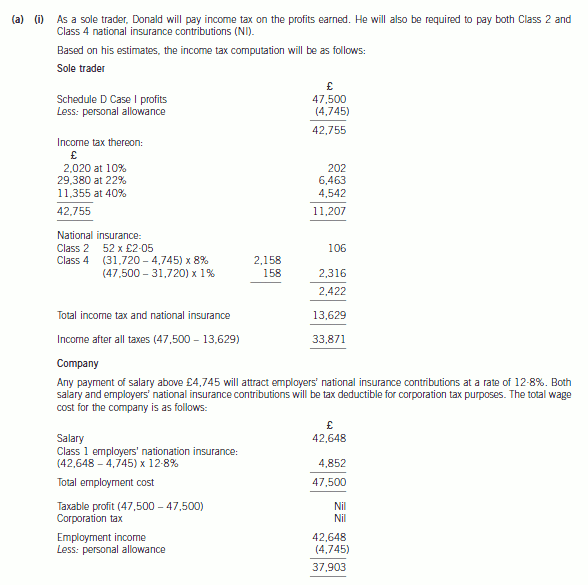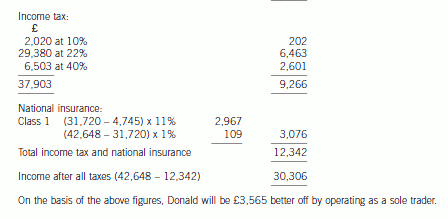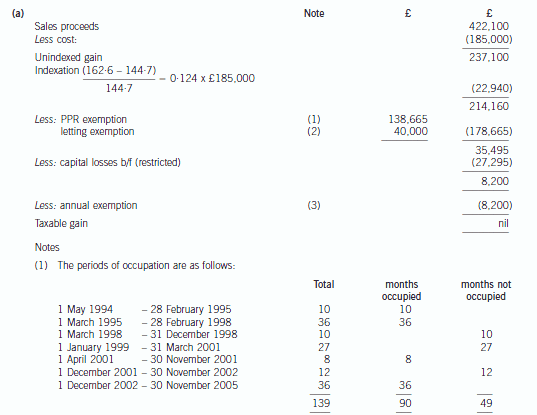2020年北京下半年教师资格考试准考证打印时间10月26日-31日
发布时间:2020-09-05
北京2020年下半年教师资格考试公告已经发布,准考证打印时间也出来了,小伙伴们都知道了吗?还不清楚的小伙伴赶紧跟随51题库考试学习网一起来看看吧,关于北京教师资格考试准考证打印相关内容。
打印准考证时间:
考生可于2020年10月26 日—10月31日登录教育部中小学教师资格考试网站报名系统,根据提示打印准考证。
打印流程:进入中国教育考试网(中小学教师资格考试网:http://ntce.neea.edu.cn)点击右下方“考生服务”中的“报名系统”栏目→选择自己省份→填写身份证号及登录密码,按照提示打印本次考试准考证。
注意事项
1、《准考证》在考试前及考试期间正反两面都禁止涂改,持涂改过的《准考证》禁忌进入考场。
2、《准考证》及身份证等有效证件是进入考场的有效凭证,请妥善保存好《准考证》。在有能力的情况下尽可能的多打印几张,分开存放,谨防丢失。
3、下载打印《准考证》后及时查看自己准考证上的信息是否完整、有误,有不完整或信息有误的情况尽早与报考点联络解决。
4、《准考证》打印黑白、彩色都可你没有明确要求。
准考生在打印常见问题
1. 下载后的准考证信息显示空白等异常?
建议重新下载pdf文件阅读器查看.可下载系统页面提供免费下载的pdf文件阅读器Foxit Reader或到其它合法网站自行下载pdf阅读器.此外,建议下载时勿使用下载工具,可选择"另存为"的方式下载.
2. 下载后的准考证考试地点内容为"无"?
建议与报考点联系咨询.
3.打印准考证必须使用IE浏览器6.0或以上版本.
4.禁用或卸载有关拦截工具.
(WindowsXP:关闭IE浏览器[工具]中[弹出窗口阻止程序])
5.调整IE浏览器安全级别.具体方法:
①依次点击IE浏览器[工具]-[Internet选项]-[安全]-[自定义级别].
②.将[安全设置]栏中[Active控件和插件]选项中的状态全部改为[启用].
6.打印前请先从"页面设置"中把页眉、页脚清空:
①点击IE窗口"文件"菜单中的"页面设置".
②在弹出的页面设置对话框中把页眉、页脚中的内容清空,再点击"确定"按钮。
以上是本次51题库考试学习网带给大家的内容,相信大家都清楚了。如果想要了解更多关于考试的资讯,记得关注51题库考试学习网!
下面小编为大家准备了 ACCA考试 的相关考题,供大家学习参考。
(c) Discuss the ethical and social responsibilities of the Beth Group and whether a change in the ethical and
social attitudes of the management could improve business performance. (7 marks)
Note: requirement (c) includes 2 professional marks for development of the discussion of the ethical and social
responsibilities of the Beth Group.
(c) Corporate social responsibility (CSR) is concerned with business ethics and the company’s accountability to its stakeholders,
and about the way it meets its wider obligations. CSR emphasises the need for companies to adopt a coherent approach to
a range of stakeholders including investors, employees, suppliers, and customers. Beth has paid little regard to the promotion
of socially and ethically responsible policies. For example, the decision to not pay the SME creditors on the grounds that they
could not afford to sue the company is ethically unacceptable. Additionally, Beth pays little regard to local customs and
cultures in its business dealings.
The stagnation being suffered by Beth could perhaps be reversed if it adopted more environmentally friendly policies. The
corporate image is suffering because of its attitude to the environment. Environmentally friendly policies could be cost effective
if they help to increase market share and reduce the amount of litigation costs it has to suffer. The communication of these
policies would be through the environmental report, and it is critical that stakeholders feel that the company is being
transparent in its disclosures.
Evidence of corporate misbehaviour (Enron, World.com) has stimulated interest in the behaviour of companies. There has
been pressure for companies to show more awareness and concern, not only for the environment but for the rights and
interests of the people they do business with. Governments have made it clear that directors must consider the short-term
and long-term consequences of their actions, and take into account their relationships with employees and the impact of the
business on the community and the environment. The behaviour of Beth will have had an adverse effect on their corporate
image.
CSR requires the directors to address strategic issues about the aims, purposes, and operational methods of the organisation,
and some redefinition of the business model that assumes that profit motive and shareholder interests define the core purpose
of the company. The profits of Beth will suffer if employees are not valued and there is poor customer support.
Arrangements should be put in place to ensure that the business is conducted in a responsible manner. The board should
look at broad social and environmental issues affecting the company and set policy and targets, monitoring performance and
improvements.
For this part, assume today’s date is 15 August 2005.
5 (a) Donald is aged 22, single, and about to finish his university education. He has plans to start up a business selling
computer games, and intends to start trading on 1 April 2006, making up accounts to 31 March annually.
He believes that his business will generate cash (equal to taxable profits) of £47,500 in the first year. He
originally intended to operate as a sole trader, but he has recently discovered that as an alternative, he could
operate through a company. He has been advised that if this is the case, he can take a maximum gross salary
of £42,648 out of the company.
Required:
(i) Advise Donald on the income tax (IT), national insurance (NIC) and corporation tax (CT) liabilities he
will incur for the year ended 31 March 2007 trading under each of the two alternative business
structures (sole trade/company). Your advice should be supported by calculations of disposable income
for both alternatives assuming that in the company case, he draws the maximum salary stated.
(7 marks)


(b) Explain the matters you should consider before accepting an engagement to conduct a due diligence review
of MCM. (10 marks)
(b) Matters to be considered (before accepting the engagement)
Tutorial note: Although candidates may approach this part from a rote-learned list of ‘matters to consider’ it is important
that answer points be tailored, in so far as the information given in the scenario permits, to the specifics of Plaza and MCM.
It is critical that answer points should not contradict the scenario (e.g. assuming that it is Plaza’s auditor who has been
asked to undertake the assignment).
■ Information about Duncan Seymour – What is the relationship of the chief finance officer to Plaza (e.g. is he on the
management board)? By what authority is he approaching Andando to undertake this assignment?
■ The purpose of the assignment must be clarified. Duncan’s approach to Andando is ‘to advise on a bid’. However,
Andando cannot make executive decisions for a client but only provide the facts of material interest. Plaza’s
management must decide whether or not to bid and, if so, how much to bid.
■ The scope of the due diligence review. It seems likely that Plaza will be interested in acquiring all of MCM’s business
as its areas of operation coincide with Plaza’s. However it must be confirmed that Plaza is not merely interested in
acquiring only the National or International business of MCM.
■ Andando’s competence and experience – Andando should not accept the engagement unless the firm has experience in
undertaking due diligence assignments. Even then, the firm must have sufficient knowledge of the territories in which
the businesses operate to evaluate whether all facts of material interest to Plaza have been identified.
Tutorial note: Candidates should be querying their competence and experience in the fields of retailing and training
as though they were dealing with highly regulated or specialist industries such as banking or insurance.
■ Whether Andando has sufficient resources (e.g. representative/associated offices), if any, in Europe and Asia to
investigate MCM’s International business.
■ Any factors which might impair Andando’s objectivity in reporting to Plaza the facts uncovered by the due diligence
review. For example, if Duncan is closely connected with a partner in Andando or if Andando is the auditor of Frontiers.
Tutorial note: Candidates will not be awarded marks for going into ‘autopilot’ on independence issues. For example,
this is a one-off assignment so size of fee is not relevant. Andando holding shares in MCM is not possible (since whollyowned).
■ Plaza’s rationale for wishing to acquire MCM. Presumably it is significant that MCM operates in the same territories as
Plaza. Plaza may be wanting to provide extensive training programs in management, communications and marketing
to its workforce.
■ The relationship, if any, between Plaza and MCM in any of the territories. Plaza may be a major client of MCM. That
is, Plaza is currently out-sourcing training to MCM. Acquiring MCM would bring training in-house.
Tutorial note: Ascertaining what a purchaser hopes to gain from an acquisition before the assignment is accepted is
important. The facts to be uncovered for a merger from which synergy is expected will be different from those relevant
to acquiring an investment opportunity.
■ Time available – Andando must have sufficient time to find all facts that would be of material interest to Plaza before
disclosing their findings.
■ The acceptability of any limitations – whether there will be restrictions on Andando’s access to information held by MCM
(e.g. if there will not be access to board minutes) and personnel.
■ The degree of secrecy required – this may go beyond the normal duties of confidentiality not to disclose information to
outsiders (e.g. if unannounced staff redundancies could arise).
■ Why Plaza’s current auditors have not been asked to conduct the due diligence review – especially as they are
responsible for (and therefore capable of undertaking) the group audit covering the relevant countries.
■ Andando should be allowed to communicate with Plaza’s current auditor:
– to inform. them of the nature of the work they have been asked to undertake; and
– to enquire if there is any reason why they should not accept this assignment.
■ In taking on Plaza as a new client Andando may have a later opportunity to offer external audit and other services to
Plaza (e.g. internal audit).
1 Stuart is a self-employed business consultant aged 58. He is married to Rebecca, aged 55. They have one child,
Sam, who is aged 24 and single.
In November 2005 Stuart sold a house in Plymouth for £422,100. Stuart had inherited the house on the death of
his mother on 1 May 1994 when it had a probate value of £185,000. The subsequent pattern of occupation was as
follows:
1 May 1994 to 28 February 1995 occupied by Stuart and Rebecca as main residence
1 March 1995 to 31 December 1998 unoccupied
1 January 1999 to 31 March 2001 let out (unfurnished)
1 April 2001 to 30 November 2001 occupied by Stuart and Rebecca
1 December 2001 to 30 November 2005 used occasionally as second home
Both Stuart and Rebecca had lived in London from March 1995 onwards. On 1 March 2001 Stuart and Rebecca
bought a house in London in their joint names. On 1 January 2002 they elected for their London house to be their
principal private residence with effect from that date, up until that point the Plymouth property had been their principal
private residence.
No other capital disposals were made by Stuart in the tax year 2005/06. He has £29,500 of capital losses brought
forward from previous years.
Stuart intends to invest the gross sale proceeds from the sale of the Plymouth house, and is considering two
investment options, both of which he believes will provide equal risk and returns. These are as follows:
(1) acquiring shares in Omikron plc; or
(2) acquiring further shares in Omega plc.
Notes:
1. Omikron plc is a listed UK trading company, with 50,250,000 shares in issue. Its shares currently trade at 42p
per share.
2. Stuart and Rebecca helped start up the company, which was then Omega Ltd. The company was formed on
1 June 1990, when they each bought 24,000 shares for £1 per share. The company became listed on 1 May
1997. On this date their holding was subdivided, with each of them receiving 100 shares in Omega plc for each
share held in Omega Ltd. The issued share capital of Omega plc is currently 10,000,000 shares. The share price
is quoted at 208p – 216p with marked bargains at 207p, 211p, and 215p.
Stuart and Rebecca’s assets (following the sale of the Plymouth house but before any investment of the proceeds) are
as follows:
Assets Stuart Rebecca
£ £
Family house in London 450,000 450,000
Cash from property sale 422,100 –
Cash deposits 165,000 165,000
Portfolio of quoted investments – 250,000
Shares in Omega plc see above see above
Life insurance policy note 1 note 1
Note:
1. The life insurance policy will pay out a sum of £200,000 on the death of the first spouse to die.
Stuart has recently been diagnosed with a serious illness. He is expected to live for another two or three years only.
He is concerned about the possible inheritance tax that will arise on his death. Both he and Rebecca have wills whose
terms transfer all assets to the surviving spouse. Rebecca is in good health.
Neither Stuart nor Rebecca has made any previous chargeable lifetime transfers for the purposes of inheritance tax.
Required:
(a) Calculate the taxable capital gain on the sale of the Plymouth house in November 2005 (9 marks)

Note that the last 36 months count as deemed occupation, as the house was Stuart’s principal private residence (PPR)
at some point during his period of ownership.
The first 36 months of the period from 1 March 1995 to 31 March 2001 qualifies as a deemed occupation period as
Stuart and Rebecca returned to occupy the property on 1 April 2001. The remainder of the period will be treated as a
period of absence, although letting relief is available for part of the period (see below).
The exempt element of the gain is the proportion during which the property was occupied, real or deemed. This is
£138,665 (90/139 x £214,160).
(2) The chargeable gain is restricted for the period that the property was let out. This is restricted to the lowest of the
following:
(i) the gain attributable to the letting period (27/139 x 214,160) = £41,599
(ii) £40,000
(iii) the total exempt PPR gain = £138,665
i.e. £40,000.
(3) The taper relief is effectively wasted, having restricted losses b/f to preserve the annual exemption.
声明:本文内容由互联网用户自发贡献自行上传,本网站不拥有所有权,未作人工编辑处理,也不承担相关法律责任。如果您发现有涉嫌版权的内容,欢迎发送邮件至:contact@51tk.com 进行举报,并提供相关证据,工作人员会在5个工作日内联系你,一经查实,本站将立刻删除涉嫌侵权内容。
- 2020-01-09
- 2020-01-10
- 2020-09-04
- 2020-01-08
- 2020-01-10
- 2020-01-09
- 2020-01-10
- 2020-12-24
- 2020-01-09
- 2020-01-10
- 2020-08-14
- 2020-01-10
- 2020-01-10
- 2021-04-09
- 2020-01-10
- 2020-01-10
- 2020-09-04
- 2020-12-24
- 2021-01-03
- 2020-12-24
- 2021-04-17
- 2020-01-09
- 2020-01-08
- 2020-01-10
- 2020-08-14
- 2020-09-03
- 2020-01-10
- 2020-01-10
- 2020-01-10
- 2021-01-03